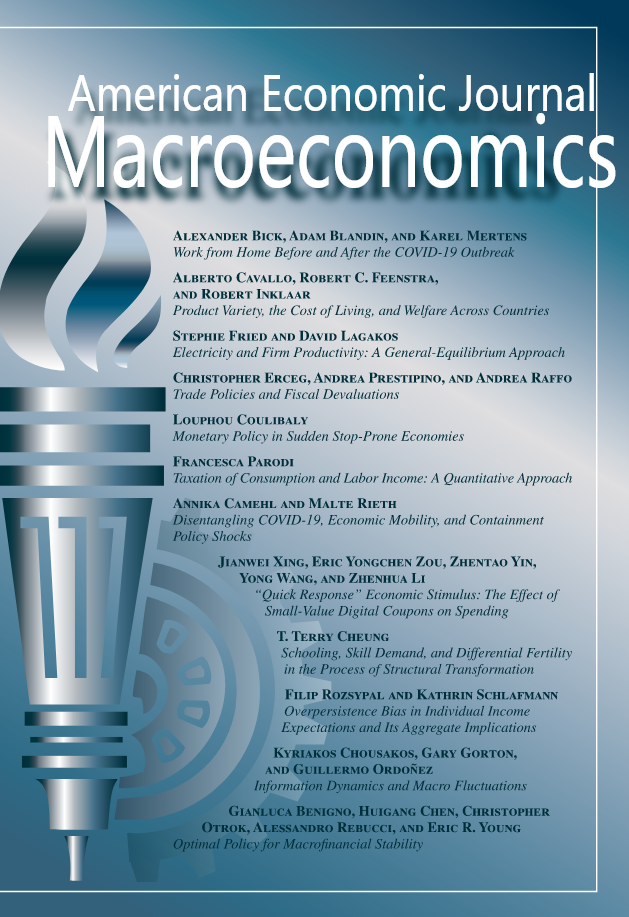抵押贷款再融资如何影响债务、违约和支出?来自HARP的证据
IF 5.7
1区 经济学
Q1 ECONOMICS
引用次数: 0
摘要
我们使用准随机访问住房可负担再融资计划(HARP)来确定再融资进入低利率抵押贷款对借款人资产负债表结果的因果影响。再融资大大降低了借款人在抵押贷款和其他债务上的违约率。再融资还会导致借款人扩大对债务工具的使用,比如汽车贷款、房屋净值贷款和其他代表支出的消费者债务。那些事先看起来更受约束的借款人在再融资后债务增长更强劲,但也会更多地偿还信用卡余额。这些借款人对再融资机会的接受程度也较低。(凝胶g51, g21, e52)本文章由计算机程序翻译,如有差异,请以英文原文为准。
How Do Mortgage Refinances Affect Debt, Default, and Spending? Evidence from HARP
We use quasi-random access to the Home Affordable Refinance Program (HARP) to identify the causal effect of refinancing into a lower-rate mortgage on borrower balance sheet outcomes. Refinancing substantially reduces borrower default rates on mortgages and other debt. Refinancing also causes borrowers to expand their use of debt instruments, such as auto loans, home equity lines, and other consumer debts that are proxies for spending. Borrowers that appear more constrained ex ante grow these debts more strongly after refinancing but also pay down credit card balances by more. These borrowers also have lower take-up of the refinancing opportunity. (JEL G51, G21, E52)
求助全文
通过发布文献求助,成功后即可免费获取论文全文。
去求助
来源期刊

American Economic Journal-Macroeconomics
ECONOMICS-
CiteScore
8.20
自引率
1.70%
发文量
58
期刊介绍:
American Economic Journal: Macroeconomics focuses on studies of aggregate fluctuations and growth, and the role of policy in that context. Such studies often borrow from and interact with research in other fields, such as monetary theory, industrial organization, finance, labor economics, political economy, public finance, international economics, and development economics. To the extent that they make a contribution to macroeconomics, papers in these fields are also welcome.
 求助内容:
求助内容: 应助结果提醒方式:
应助结果提醒方式:


